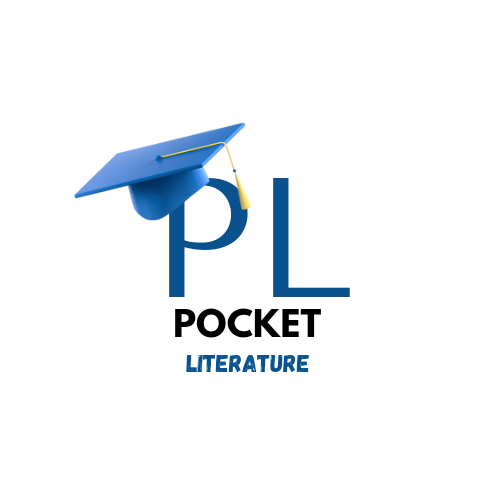1.1 Meaning and Concept of Teacher Education - Objectives of Teacher Education
Meaning and Concept of Teacher Education
Teacher education refers to the structured process of preparing individuals for the teaching profession. It includes both theoretical and practical aspects aimed at equipping future teachers with pedagogical skills, subject expertise, and professional ethics. It encompasses pre-service education, which prepares prospective teachers before entering the classroom, and in-service education, which provides professional development for practicing teachers.
Teacher education is essential for:
- Enhancing the quality of education through well-trained teachers.
- Providing pedagogical knowledge and strategies to improve classroom instruction.
- Developing teachers' ability to integrate modern technology and research-based techniques in their teaching practices.
Objectives of Teacher Education
The National Council for Teacher Education (NCTE) and National Curriculum Framework for Teacher Education (NCFTE, 2009) outline the following objectives:
- Developing Pedagogical Skills: Teachers should be able to design and implement effective teaching methodologies.
- Enhancing Professional Competence: Encouraging a commitment to lifelong learning and ethical teaching.
- Understanding Learner Diversity: Catering to students from different backgrounds, abilities, and learning needs.
- Improving Subject Knowledge: Deepening knowledge of the subject matter.
- Technology Integration: Using ICT and digital tools in teaching.
- Inculcating Research and Innovation: Encouraging action research and reflective practices.
- Promoting Inclusive Education: Training teachers to handle children with special needs.
- Developing Leadership and Management Skills: Equipping teachers for administrative and leadership roles in educational institutions.
1.2 Evolution and Development of Teacher Education in India
Teacher education in India has undergone several changes from the ancient to the modern period:
Ancient and Medieval Periods:
- Education was provided through the Gurukula system, where students lived with their teacher (guru) and learned through oral traditions.
- Teaching focused on moral, spiritual, and vocational training rather than formal teacher training programs.
- Notable centers: Takshashila, Nalanda, and Vikramshila universities.
- The emphasis was on character building, self-discipline, and holistic development rather than pedagogy.
Colonial Period (1757-1947):
- The British introduced formal education and teacher training institutes.
- Wood’s Dispatch (1854) emphasized teacher training and established normal schools.
- Hunter Commission (1882) recommended expanding teacher training institutions.
- Gandhi’s Basic Education (1937) focused on skill-based training for teachers.
- The introduction of Macaulay’s Minute (1835) led to English as the medium of instruction, significantly influencing teacher education.
- Establishment of teacher training colleges like David Hare Training College and Bombay Training College.
Post-Independence Developments:
- University Education Commission (1948-49): Stressed teacher training reforms, emphasizing professional training.
- Kothari Commission (1964-66): Recommended integrated programs for teacher training and continuous professional development.
- National Policy on Education (1986, 1992): Introduced professionalization of teacher education and District Institutes of Education and Training (DIETs).
- NCTE Act (1993): Established the National Council for Teacher Education to regulate teacher training programs and maintain standards.
- Sarva Shiksha Abhiyan (2001): Focused on large-scale teacher recruitment and training programs for universal education.
- RTE Act (2009): Made elementary education a fundamental right, increasing demand for trained teachers.
- Recent Developments:
- National Education Policy (NEP) 2020 introduced four-year integrated B.Ed. programs and competency-based teacher education.
- Emphasis on multidisciplinary training, technology-based learning, and continuous professional development.
- Introduction of digital teacher training platforms like DIKSHA and SWAYAM.
- Greater focus on internship-based teacher training programs for hands-on experience.
- Shift towards outcome-based teacher education, emphasizing real-world classroom applications.
1.3 Approaches to Teacher Education
1. Consecutive vs. Integrated Approach
- Consecutive Model:
- Traditional pathway where students complete a bachelor’s degree in a subject first, followed by a B.Ed. degree.
- Example: BA/BSc + B.Ed. (2 years).
- Integrated Model:
- Combines subject learning and teacher training in a single course.
- Example: 4-year integrated B.Ed. (as per NEP 2020 guidelines).
2. Face-to-Face vs. Distance Mode
- Face-to-Face: Traditional classroom learning where students interact with instructors directly.
- Distance Mode: Online or correspondence courses; examples include IGNOU, NIOS B.Ed. programs.
3. Pre-service vs. In-service Teacher Education
- Pre-service: Training for aspiring teachers before they start teaching (e.g., B.Ed., D.El.Ed.).
- In-service: Training for working teachers to upgrade their skills (e.g., refresher courses, workshops).
1.4 Different Levels of Teacher Education Programs
1. Pre-Primary Level
- Early Childhood Care and Education (ECCE) Training.
- Montessori and Nursery Teacher Training (NTT).
- Diploma in Early Childhood Education (D.E.C.Ed.).
2. Primary Level
- Diploma in Elementary Education (D.El.Ed.).
- Bachelor of Elementary Education (B.El.Ed.).
3. Secondary and Higher Secondary Level
- Bachelor of Education (B.Ed.).
- Master of Education (M.Ed.).
1.5 Specializations in Teacher Education Programs
1. Teacher Educators
- They train future teachers at B.Ed. and M.Ed. levels.
- Required qualifications: M.Ed., Ph.D. in Education.
2. Special Educators
- Focus on students with disabilities (visual impairment, autism, dyslexia, etc.).
- Example programs: B.Ed. in Special Education, Diploma in Special Education (DSE).
3. Physical Educators
- Train students in sports, physical health, and fitness.
- Example degrees: B.P.Ed., M.P.Ed.
4. Technical Teachers
- Teach vocational subjects like engineering, agriculture, and business studies.
- Example programs: Diploma in Technical Education, B.Ed. in Vocational Education.
References
- National Education Policy (NEP) 2020 – Ministry of Education, Government of India.
- National Curriculum Framework for Teacher Education (NCFTE), 2009 – NCTE.
- Teacher Education: Reflections Towards Policy Formulation – NCERT.
- University Grants Commission (UGC) Guidelines on Teacher Education, 2015.
- IGNOU & NIOS Guidelines on Distance B.Ed. Programs.
This detailed study material comprehensively covers Teacher Education, incorporating authentic sources and updated policies. Let me know if you need further refinements or additional details!






